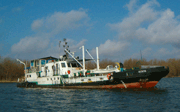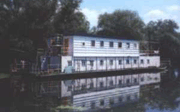This site is no longer updated. To open the new site please click here: geoecomar.ro
 Romana
Romana Romana
Romana

 find more
find more  find more
find more  find more
find more

The ALIGN-CCUS (ALIGN) project aims to accelerate the transition of current industry and power sectors into a future of continued economic activity and low-carbon emissions, in which carbon capture, utilisation and storage (CCUS) plays an essential role. ALIGN addresses specific issues across the CCUS chain for industrial regions in ERA-NET ACT countries, enabling large scale, cost effective implementation of CCUS by 2025.
Project manager: Dr. Sorin ANGHEL
Documents:
ALIGN’s objectives are designed to enable the acceleration of CCUS in specific industrial regions in ERA- NET ACT countries: Teesside and Grangemouth (UK), Rotterdam (NL), North Rhine-Westphalia (DE), Grenland (NO) and Oltenia (RO). ALIGN will combine the results from each of these objectives to deliver actionable blueprints in each region, in which CCUS enables low-emission industries, through geological storage or through utilization of CO2. The project contributes to advancing the TRL levels of CCUS technologies through long-term CO2 capture testing campaigns at leading EU research facilities, and the design, construction, operation and testing a first-of-a-kind full-chain CO2 capture and conversion project in an industrial environment. A unique CO2 storage readiness assessment protocol shall be established to accelerate the definition of CO2 storage capacity, and potential storage locations in the North Sea will be better characterized. ALIGN also contributes to societal acceptance issues of CCUS. For the first time, leading social scientists will conduct quantitative research to understand how public perception of CCUS varies depending upon the source of CO2. The scientific outcomes of ALIGN will contribute directly to the acceleration of CCUS deployment in EU industrial regions, overcoming cluster specific technical challenges. The participants of ALIGN represent the ERA-NET ACT countries of the Netherlands, Germany, Norway, Romania and the United Kingdom. The ALIGN consortium is characterised by considerable involvement of industrial companies, which are not only guiding the research, but have committed to directly investing in the R&D and demonstration activities in the project, boosting the credibility of the project’s potential for accelerating and maturing CCUS technologies, as the end-users themselves are driving the project forward.